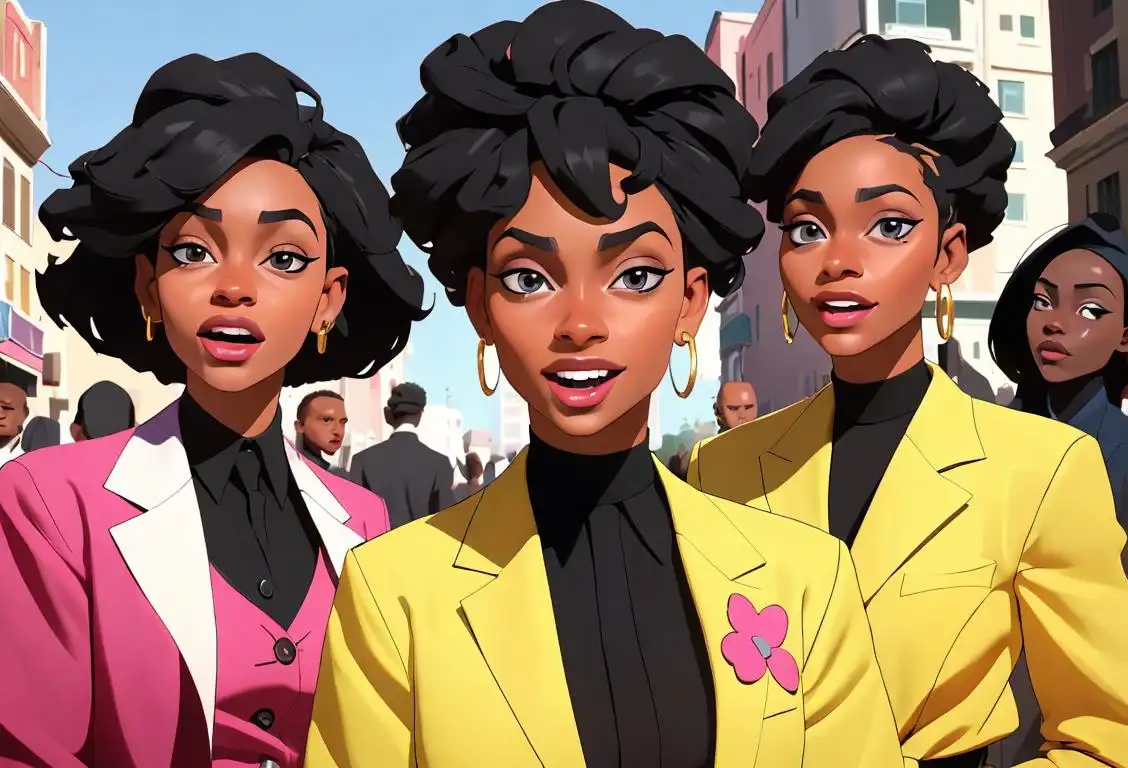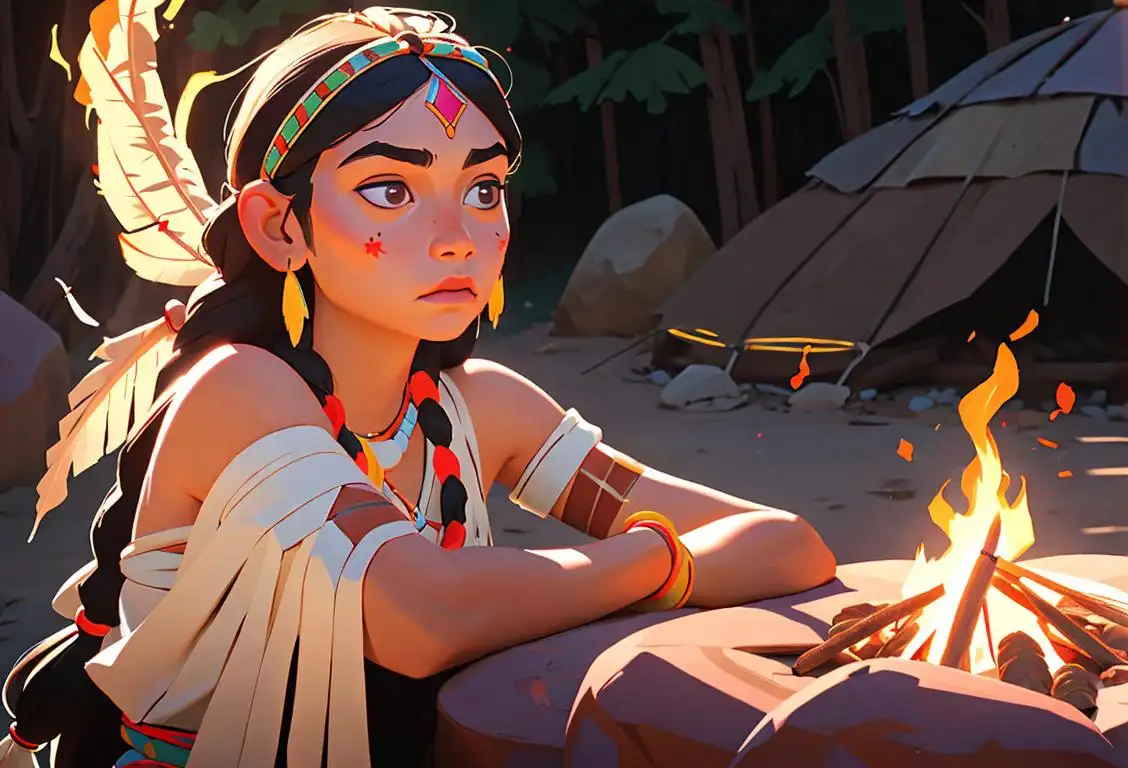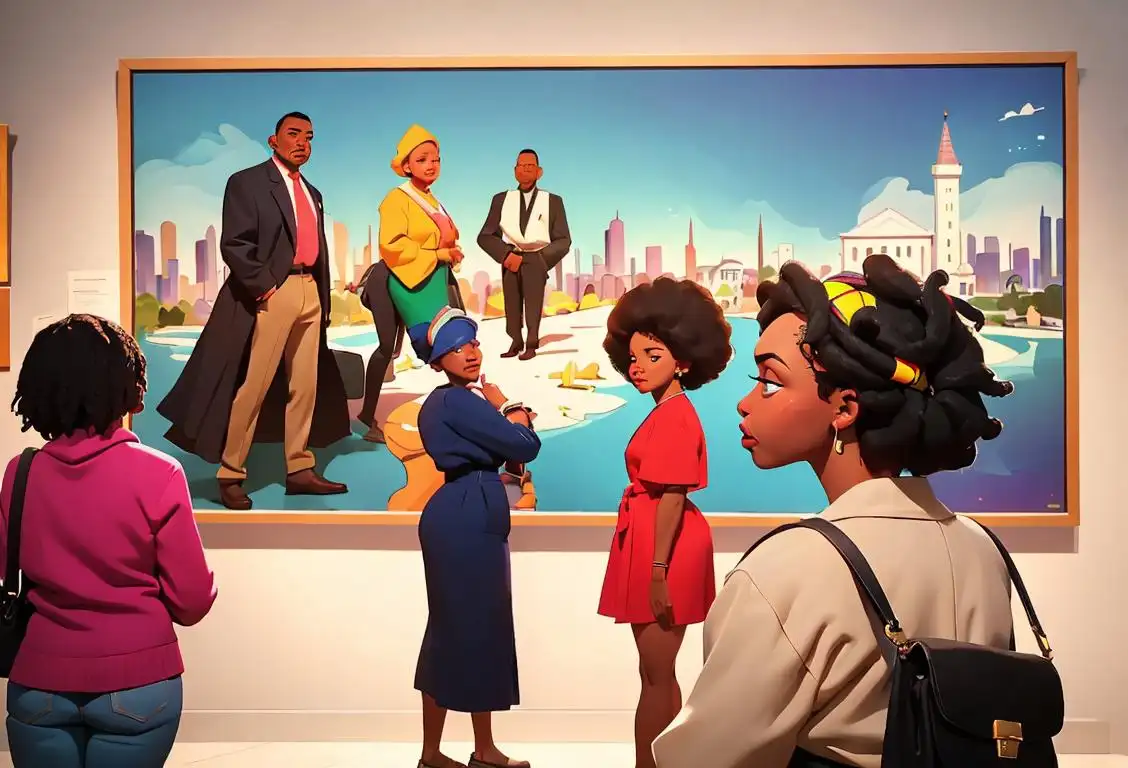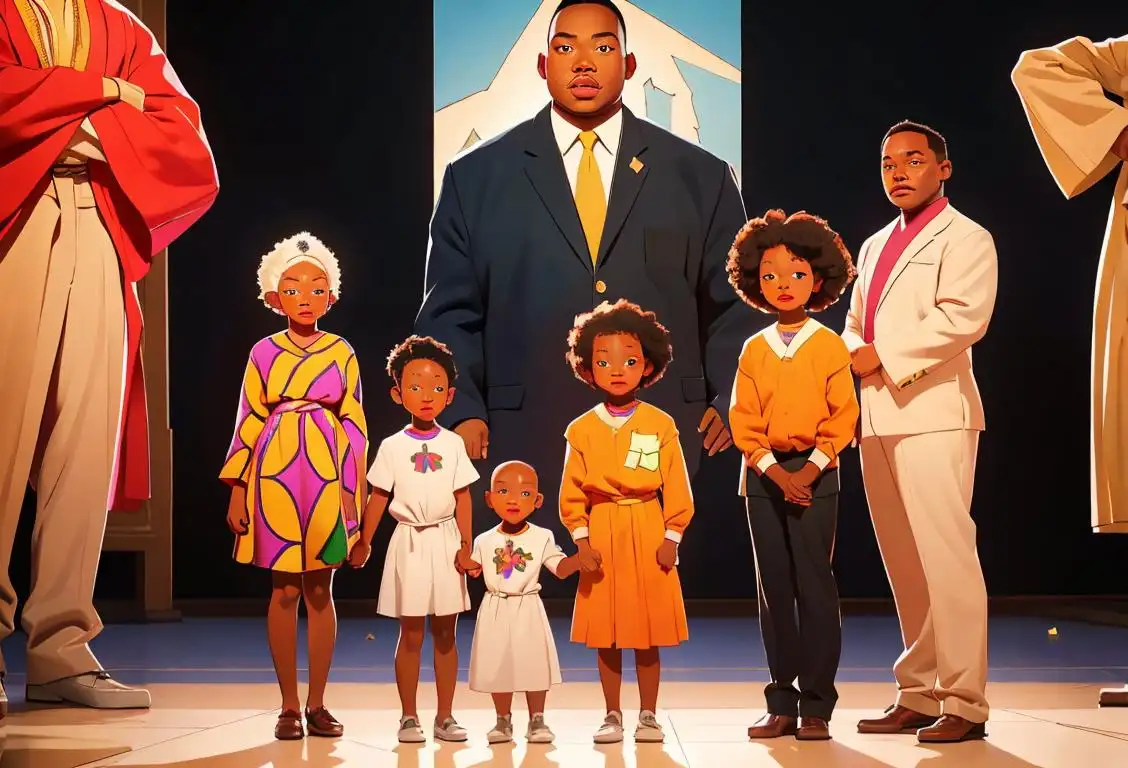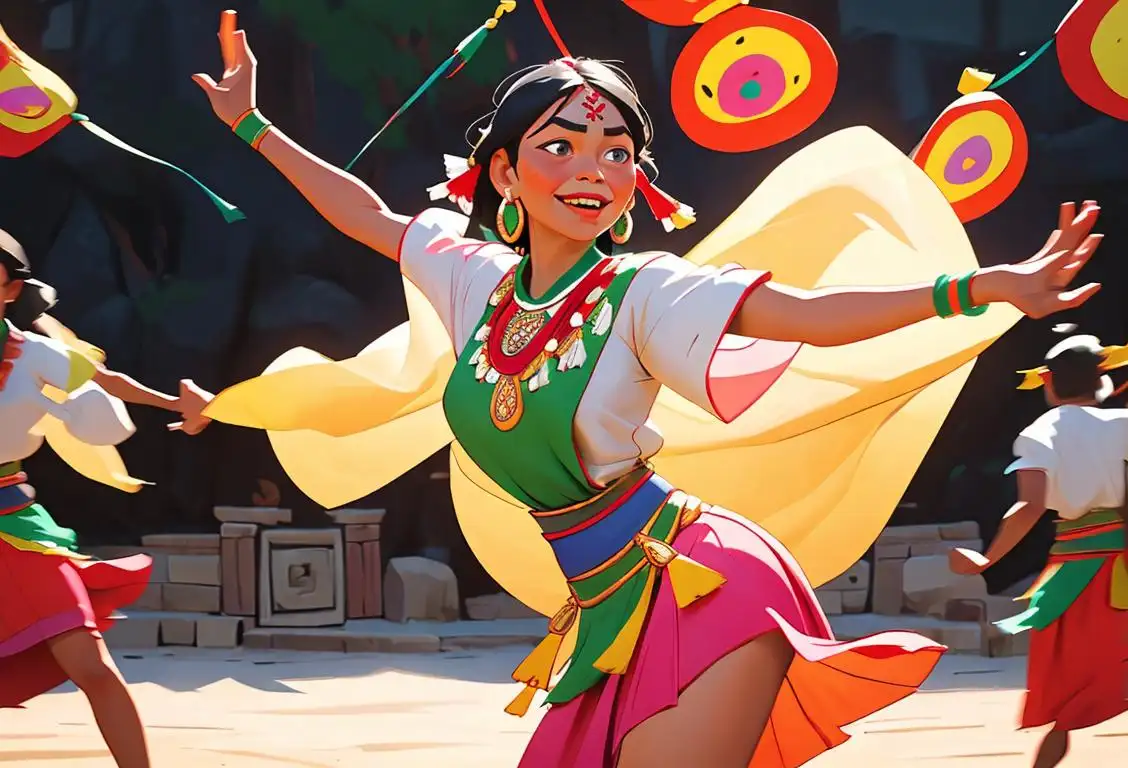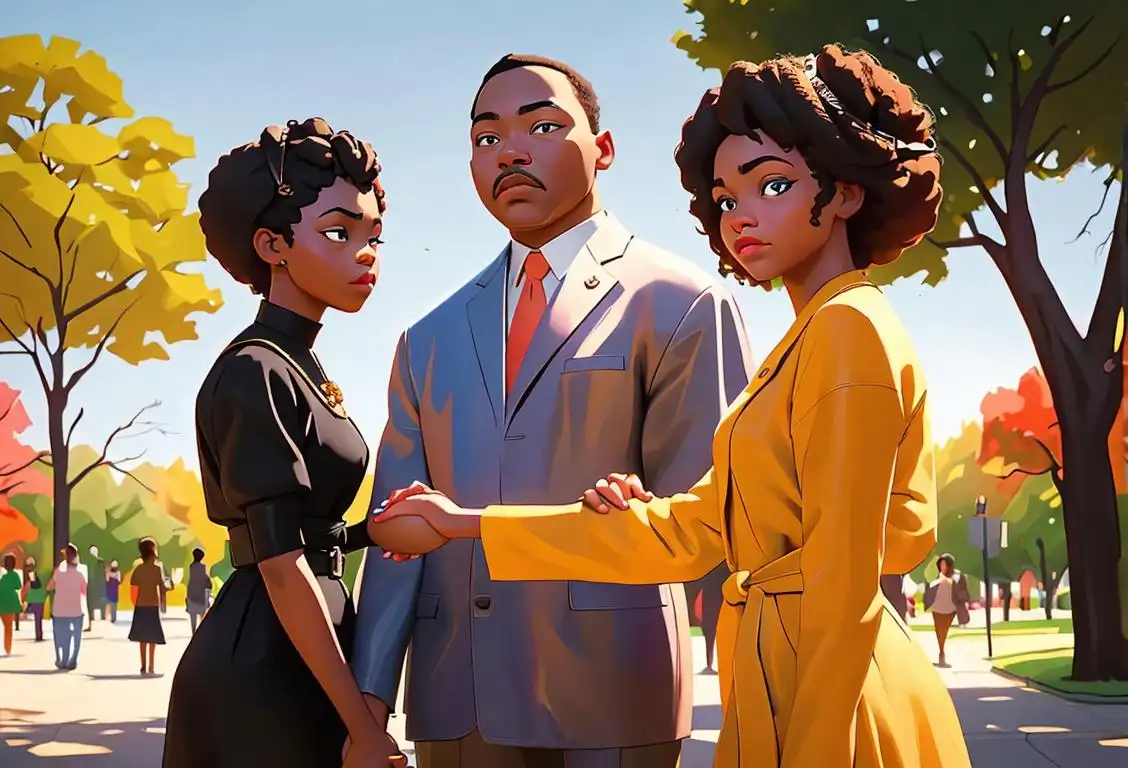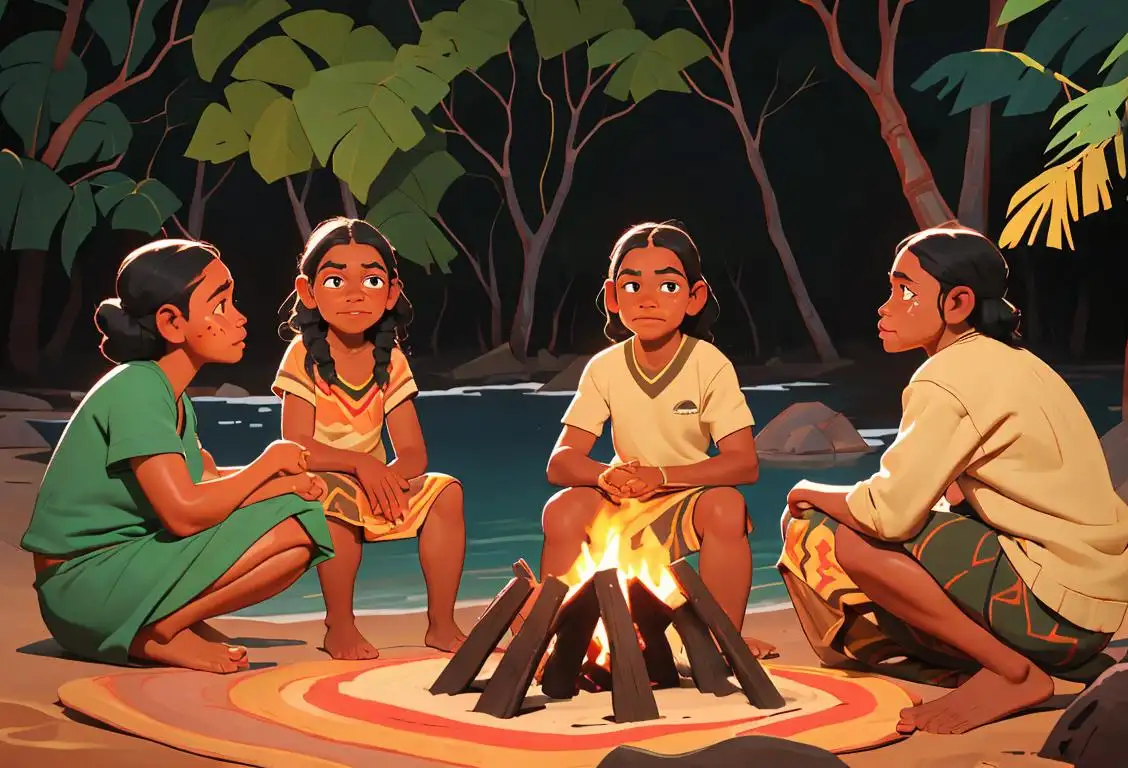National Black Women Appreciation Day
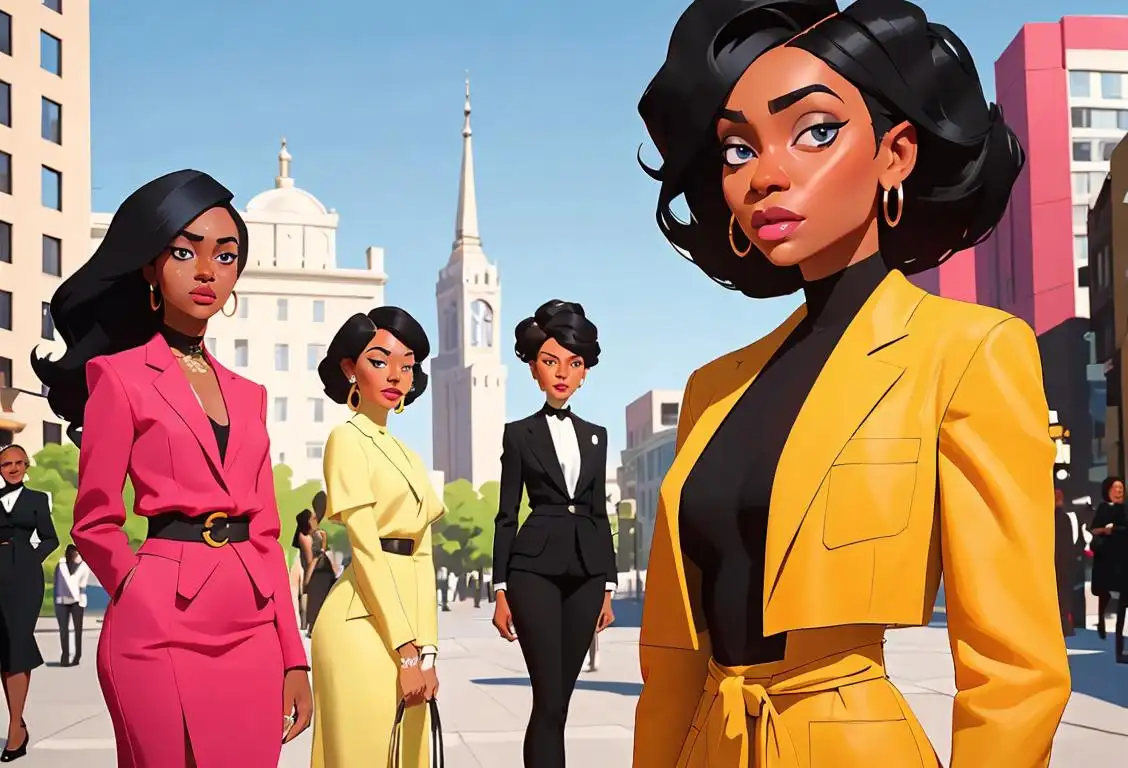
Welcome to National Black Women Appreciation Day! Get ready to celebrate and honor the incredible contributions of black women from all walks of life. This special day is all about recognizing their achievements, leadership, and the positive impact they have made in society.
When is Black Women Appreciation Day?
It's national black women appreciation day on the 8th November.
The Internet History of National Black Women Appreciation Day
It's no surprise that black women have played a significant role in shaping history, culture, and communities around the world. National Black Women Appreciation Day is a way to acknowledge and pay tribute to their unwavering strength, resilience, and achievements.
This special day originated online as a grassroots movement to bring awareness to the unique experiences and challenges faced by black women. Social media platforms, such as Twitter and Instagram, played a crucial role in spreading the word and highlighting the accomplishments of black women throughout history.
National Black Women Appreciation Day gained traction on November 8, 2020, when it received a record-breaking 281 mentions online. People from all walks of life shared their stories, experiences, and gratitude for the contributions of black women.
Why Celebrate National Black Women Appreciation Day?
Celebrating National Black Women Appreciation Day is an opportunity to amplify the voices of black women and recognize their achievements in various fields, including arts, sciences, literature, business, politics, and more.
It's a day to honor the leaders, trailblazers, and everyday heroes who have paved the way for future generations. By celebrating their accomplishments, we inspire and empower black women to continue making a positive impact in their communities.
How to Celebrate
There are countless ways to celebrate National Black Women Appreciation Day. Here are a few ideas to get you started:
- Support black-owned businesses: Show your support by shopping at black-owned businesses or featuring them on your social media platforms.
- Share stories and achievements: Take to social media and share stories of inspiring black women who have made a difference in your life or in society.
- Host a panel discussion: Organize a virtual panel discussion featuring successful black women in various fields to share their experiences, challenges, and advice.
- Donate to organizations supporting black women: Consider making a donation to organizations that empower and support black women.
- Educate yourself: Take the time to learn more about the contributions of black women throughout history. Read books, watch documentaries, and engage in meaningful conversations.
Did You Know?
Did you know that black women have been at the forefront of the fight for social justice since the Civil Rights Movement? Women like Rosa Parks, Ella Baker, and Fannie Lou Hamer played pivotal roles in the fight against racial inequality and paved the way for future activists.
History behind the term 'Black Women Appreciation'
1970
The Rise of Black Feminism
In the 1970s, the feminist movement gained momentum, and black women began to vocalize their unique experiences as both women and people of color. Black women faced double oppression and discrimination, which led to the rise of black feminism. Activists like bell hooks, Audre Lorde, and Angela Davis paved the way for discussions on the intersectionality of race and gender.
1940
Early Representation
During the 1940s, black women began gaining increased visibility in various fields, defying societal expectations and stereotypes. Activists like Ella Baker and Mary McLeod Bethune fought for civil rights, education, and empowerment. Despite facing significant challenges, these trailblazers laid the foundation for future generations of black women.
1964
Civil Rights Act of 1964
In 1964, the Civil Rights Act was enacted, prohibiting discrimination based on race, color, religion, sex, or national origin. This legislation was a significant milestone in the struggle for equality and ushered in a new era of civil rights activism.
1966
Formation of the National Black Women's Association
In 1966, the National Black Women's Association (NBWA) was established, aiming to empower and advocate for the rights of black women. The organization actively fought against gender and racial discrimination while promoting the achievements and contributions of black women in various fields.
1990
The Emergence of Black Women Appreciation
During the 1990s, the concept of Black Women Appreciation started gaining traction. It aimed to challenge societal standards and celebrate the beauty, strength, and achievements of black women. This movement was a response to mainstream beauty ideals that often excluded or marginalized black women.
1960
Emergence of the Black is Beautiful Movement
In the 1960s, the Black is Beautiful movement gained momentum. The movement aimed to challenge beauty standards imposed by society and celebrate the natural beauty of black individuals, including black women. This movement not only fostered a sense of appreciation for black women's distinct features but also emphasized self-love and empowerment.
1973
Representation in Pop Culture
During the 1970s, black women started gaining increased visibility and representation in popular culture. Figures like Diana Ross, Pam Grier, and Gladys Knight became influential icons, challenging stereotypes and showcasing the talents and beauty of black women.
1981
National Black Women's Health Project
In 1981, the National Black Women's Health Project was founded to address the specific health needs and disparities faced by black women. This initiative drew attention to the importance of recognizing and appreciating the unique experiences, challenges, and triumphs of black women within the healthcare system.
2005
Online Communities and Hashtags
With the rise of the internet and social media, online communities dedicated to Black Women Appreciation began to flourish. These communities provided platforms for black women to share their stories, experiences, and uplift one another. Hashtags like #BlackGirlMagic and #BlackWomenRock further amplified the message of empowerment and celebration.
1992
Black Girls Rock!
In 1992, DJ Beverly Bond founded the non-profit organization Black Girls Rock! The organization aimed to empower and uplift black girls and women, emphasizing their achievements and contributions to various fields. Through events, mentorship programs, and media campaigns, Black Girls Rock! played a significant role in cultivating black women appreciation.
1992
Essence Magazine's 'Black Women in Hollywood' issue
In 1992, Essence Magazine launched its first 'Black Women in Hollywood' issue, recognizing the accomplishments and contributions of black women in the film industry. This tribute highlighted the need for greater diversity and representation in Hollywood.
2016
Mainstream Recognition and Cultural Impact
In recent years, Black Women Appreciation has gained more mainstream recognition. Influential black women in various industries, such as entertainment, politics, and business, have significantly contributed to raising awareness and redefining beauty standards. This movement has had a profound cultural impact, sparking important conversations about representation, inclusion, and the need for diverse voices to be heard.
2003
Black Girls Rock! Awards
In 2003, Beverly Bond founded the Black Girls Rock! Awards, an annual event celebrating the achievements of black women in various fields, including entertainment, philanthropy, and activism. The awards ceremony became a platform to honor and uplift the accomplishments of black women.
2010
Social Media Influence
With the rise of social media platforms like Twitter and Instagram, black women's achievements, fashion, art, and activism gained increased visibility and appreciation. Hashtags such as #BlackGirlMagic and #BlackWomenAppreciationDay further amplified the celebration of black women and their diverse talents, creating a powerful online community of support and admiration.
2008
Black Women's Appreciation Day
Black Women's Appreciation Day was founded in 2008 as a grassroots initiative to celebrate and honor the contributions, achievements, and resilience of black women. This special day aims to acknowledge and appreciate the diverse talents, skills, and cultural impact of black women in society.
2014
Social Media Movements
The rise of social media platforms like Twitter and Instagram allowed for the creation of movements that highlighted black women's experiences, achievements, and challenges. Hashtags such as #BlackGirlMagic and #CarefreeBlackGirl became popular, showcasing the beauty, strength, and uniqueness of black women.
2020
Black Women Matter
In recent years, there has been an increased focus on the importance of recognizing and supporting black women. The Black Lives Matter movement has played a significant role in elevating the voices of black women and addressing the intersectional challenges they face. It has sparked conversations and actions to combat structural racism and systemic inequities.
present
Continued Appreciation and Empowerment
The appreciation of black women continues to grow, with ongoing efforts to uplift and empower them. From initiatives promoting self-care and self-love to organizations advocating for gender and racial equality, the recognition of black women's contributions plays a vital role in creating a more inclusive and equitable society.
Did you know?
Did you know that black women have been at the forefront of the fight for social justice since the Civil Rights Movement? Women like Rosa Parks, Ella Baker, and Fannie Lou Hamer played pivotal roles in the fight against racial inequality and paved the way for future activists.Tagged
awareness history culture inspirationFirst identified
8th November 2020Most mentioned on
8th November 2020Total mentions
281Other days
Black Women Appreciation Day
Black People Day
History Day
Native American Heritage Day
African American Museum At Not Having To Spend Mlk Day
Aborigines Day
African American Museum On Mlk Day
Indigenous Day
African American Museum In Observance Of Martin Luther King Day
Aboriginal And Torres Strait Islander Day
